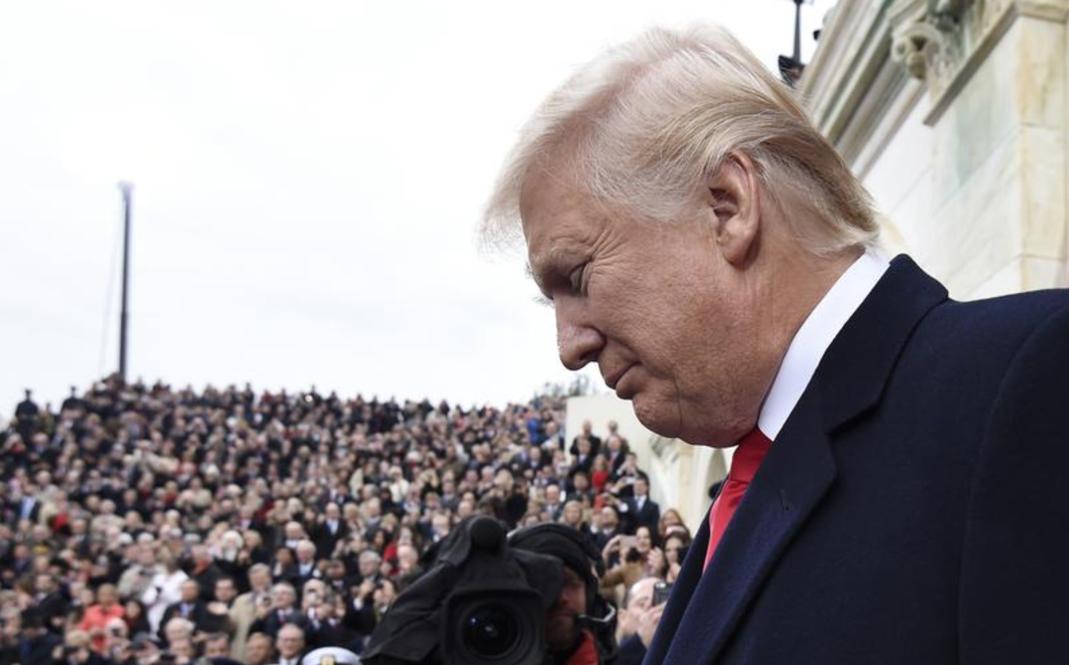As I tucked my daughter into bed, our cozy bedtime chat about the day and what's on our minds turned to the new neighbors we had met the week before. I was feeling very lucky to have them. Not only because I love our town and its welcoming, diverse vibe, but because if they had not arrived when they did, they might not have made it all.
The Abdullah family — a pseudonym — are refugees from Syria. They arrived in the U.S. exactly one week before President Trump signed an executive order banning people like them, who'd escaped an unbearably brutal war, from starting new lives here.
My daughter, 10, and I met the Abdullahs as we brought them dinner on Friday night. Three synagogues, including the one we belong to, are cooperating to support the family in getting settled, including with meals two days a week. Although our instructions were to leave our contribution in a cooler by the front door, the family saw us arrive, and invited us in.
As we removed our shoes at the doorway, they smiled, anticipating our entry. I had tried to teach my daughter to greet them in the traditional Muslim way, "as-salaam alaikum." But she was nervous. She had trouble untying her shoe at the door. The words jumbled in her mouth. I think she managed "Salaam." But the family earnestly responded "Wa alaikum as-salaam." And peace be upon you.
Introductions over, we sat down on a large wrap-around couch that took up most of the living room. The couch was more familiar than the family, as one of our friends had donated it to them. The Abdullahs came with only what they could carry.
There is tremendous interest in our community in helping the Abdullahs, which means we try to put ourselves in their shoes — we’re still learning how. At one point there had been discussion of using funds to buy gift cards for a local movie theater and restaurants. A nice gesture, but life was likely to be disorienting enough for them for a while. Maybe the gift card culture could be introduced at a later stage.
So, we stuck to the basics: furniture, clothing, warm coats, a stocked pantry, and home-cooked meals.
We sat quietly, trying to make some attempts at small talk. The mother, Fatima, just smiled. Amira, 21, spoke for the family; her English was best. Her sister, Shaza, 17, also clearly knew English and would jump in when Amira and I struggled to communicate. But Shaza was in her own world, in that universal, too cool, teenager way. Mostly she kept to her phone. I hoped she was still in touch with friends from Syria. Or from the refugee camp in Turkey where the family had spent three years. Starting a new school is hard, even for kids who haven't been displaced by war. She'll still need her old networks, as she makes new ones here.
I tried to understand some of the basics of the Abdullahs' recent life. I'm looking for a personal connection, and a way to introduce my daughter to people with experiences that are different from her own. It was quickly clear my work life at Human Rights Watch was not far away.
The Abdullahs are from Damascus. Shaza had been out of school since the family fled their home. Aisha, almost 7, had never been to school. We have documented how Syrian families who have managed to escape horrifying attacks land in neighboring countries where they face often-insurmountable hurdles to getting their kids in school. It is particularly difficult for children with disabilities like Aisha, who has Down Syndrome.
We continue chatting. Karam, the girls' father, pulled up a translator app on his phone: "I am Turkmen" it announced. Ethnic Turkmens? Hm, another possible connection? I do some work on Turkmenistan ... but how to explain. It's too much for now. But there is time. We'll have more conversations.
We talked a bit about Aisha starting elementary school soon. Her birthday is coming up. I asked how they usually celebrate in their family. "Cake!" came the answer. Amira said, "Aisha also loves pizza." I smiled in acknowledgment: "That's exactly what we ate for my son's 6th birthday last week!" Knowing laughter all around. The conversation, such as it was, slowed. It was time for our family to make dinner; time for the Abdullahs' dinner as well.
I've been thinking about the family a lot ever since, and apparently my daughter has too. The last thing she said as I turned out the light in her room was, "I really can't wait to see the Abdullahs again. Maybe we can even have pizza?"
Yes, I thought, good idea. We come from utterly different worlds, but the connections are many. All we have to do is be open to finding them.









